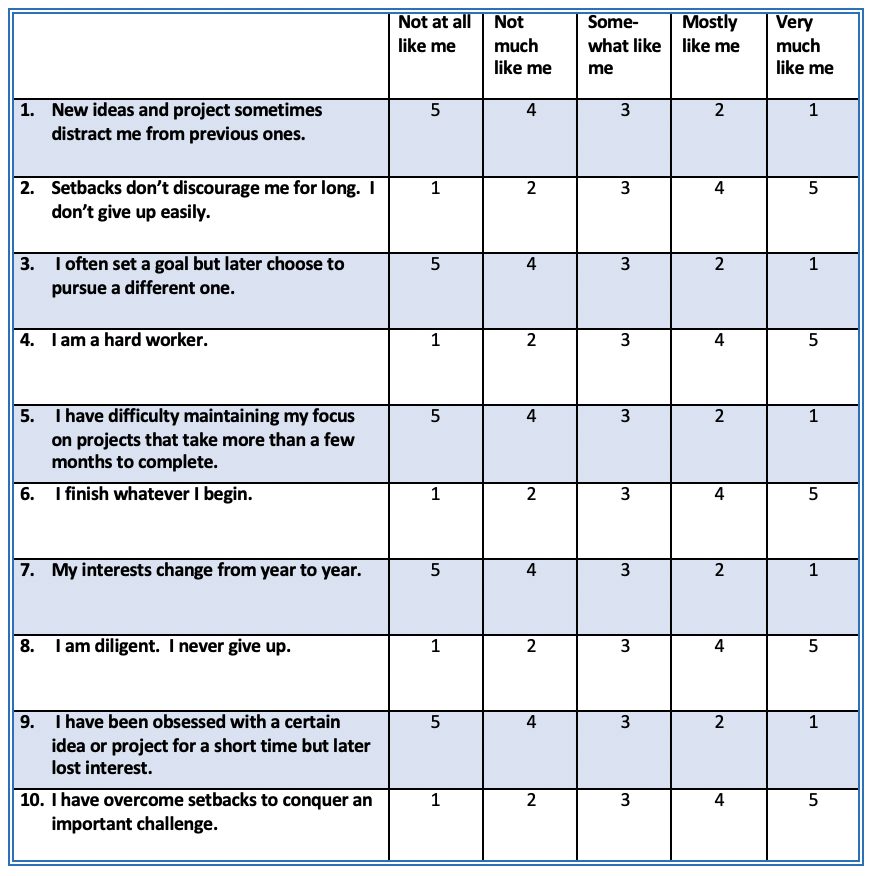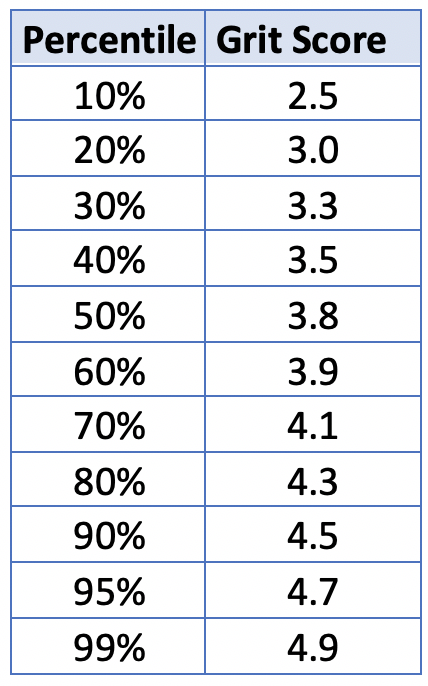Grit – Where Passion and Perseverance Meet to Predict Success
By Martha Kelley, Adapted from the book, Grit, by Angela Duckworth
Transport yourself to the campus of the U.S. Military Academy at West Point.
Admission to West Point is arguably tougher than even the most selective universities. If you decide to apply to West Point, you start in the 11th grade, and not only do you have top SAT scores and outstanding grades, but you have to be nominated by a member of Congress, show leadership potential in a tough interview, and get superlative marks in a grueling fitness assessment. Of the 14,000 applicants, only 1,200 are admitted. Yet, after going through the competitive admissions process, one in five cadets will drop out before graduation. A substantial number will quit during their very first summer, a seven-week training/orientation called The Beast, a boot camp style introduction to the military.
Who spends years trying to get into a place and drops out in the first two months? Granted, these aren’t ordinary months – it’s a rotation of intense calisthenics, marching in formation, classroom instruction, weapons training, and athletics from 5 am to 10 pm, with no breaks, no weekends, no contact with family and friends. The point is to toughen you.
What do you think the best predictor of who will make it through Beast is?
- High School GPA
- ACT/SAT Scores
- High School Rank
- Fitness Assessment Score
- Whole Candidate Score (weighted average of all the above)
- Interview Scores assessing Leadership Potential
- None of the Above
In 2004, Duckworth set about answering that question. West Point had formulated what they call a Whole Candidate Score, a weighted formula with all the admissions requirements and leadership potential factored in; it was an estimate of how easily cadets will master the many skills required of a military leader. It was THE most important factor in West Point Admissions, yet it didn’t reliably predict who would make it through the Beast. She interviewed cadets and started hearing a theme from those who stuck it out. Those who dropped out rarely did so from lack of ability. Rather, what mattered bas a “never give up” attitude.
Combined with her research of accomplished people, she formulated a “grit scale” with questions about the two dimensions of grit – passion and perseverance. It measures the extent to which a person approaches life with grit. Grit turned out to be an astoundingly reliable predictor of who made it through and who did not. She repeated the study the next year. Same results. So, what matters for making in through Beast? Not your SATs, your high school rank, your leadership experience, your athletic ability. Not your Whole Candidate Score. What matters is grit.
After West Point, Duckworth wondered if this concept would apply to other fields. Next, she tested sales, a profession in which daily, if not hourly, rejection is par for the course. She asked hundreds of salespeople at a vacation time-share company to answer a battery of personality questions. Six months later, she revisited the company and 55% of the salespeople were gone. Grit predicted who stayed and left. No other personality trait was as effective as grit in predicting job retention.
In fact, further studies proved grit to be an astonishing predictor of success in employee development, parenting, coaching, teaching, the arts, both on the individual and organizational levels.
| How gritty are you? Take the quick assessment. |
|
||
|
|
|||
| Add your scores and compare yourself to these national percentages. | |||
|
|
UT CIS offers a two-hour session introducing the topic as well as grittiness improvement strategies. For more information, contact Martha.Kelley@tennessee.edu. Not as gritty as you would like to be? The good news is that grit is a learnable, improvable skill. For more on this vital and timely topic, read Grit, by Angela Duckworth.


